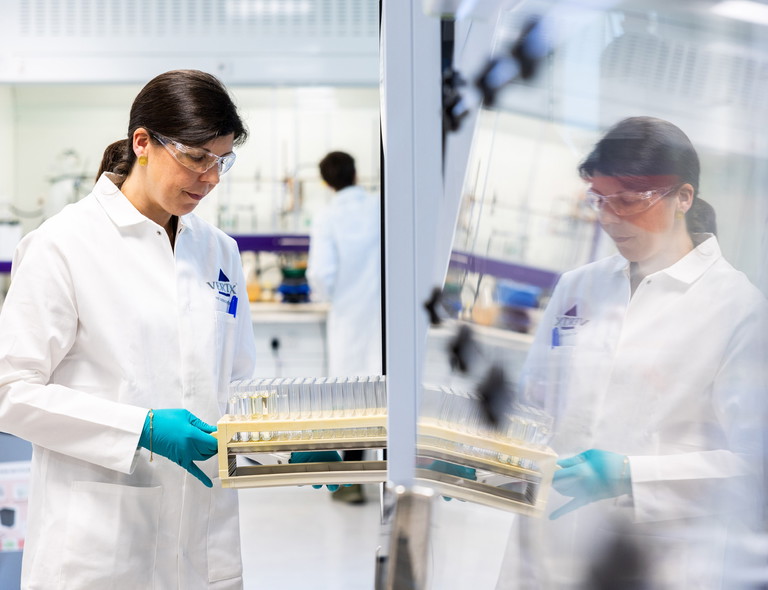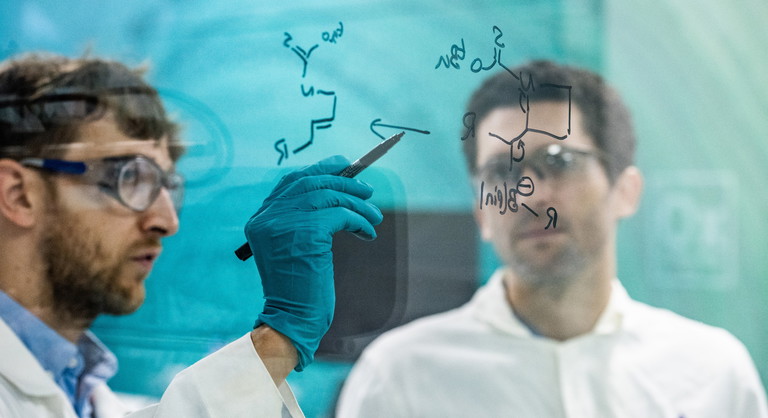Industry Insight
Disrupting drug discovery: to take on the impossible
Dr Mark Bunnage, Senior Vice President and Head of Global Research at Vertex Pharmaceuticals, talks to Pharmafocus about scientific innovation to help create transformative medicines for people living with serious diseases
Pharmafocus: What are your biggest learnings from the biotech evolution over the past ten to 20 years?
Mark Bunnage (MB): I've been in the industry for nearly thirty years, and during this period, there have been only a few therapies that have truly transformed people's lives. A major challenge in biomedical research has been a lack of understanding of disease biology, leading to high attrition rates in clinical trials. It’s crucial to understand what’s driving a disease to develop effective therapies. Here at Vertex, we only work on projects where we deeply understand the underlying human causal biology. We are modality agonistic, applying the right tools to target the disease with the hope of delivering potentially transformative treatments. I feel now is an incredibly exciting time for biomedical research, given the opportunities to combine advances in human disease biology understanding with new therapeutic innovation.
Pharmafocus: What do you think differentiates Vertex within the biotech industry?
MB: At Vertex, our R&D strategy is unique. At the highest level, it is simply to tackle serious diseases and only work on transformative therapies. To deliver on that, we’re disciplined, only working where we understand the causal human biology and where human disease cellular models, not mouse models, can be used to validate our therapeutic approaches. Secondly, we invest the majority of our resources into R&D, with three in five of our staff working in this function. This is important, as I believe that the true value in our industry lies in scientific innovation. Finally, we have a very diverse set of modalities; our focus is on finding the most effective solution, be that small molecules, biologics, cell or genetic therapies.

Ultimately, we’re a disease-first company, not a therapeutic area or platform company, with the aim of using innovative approaches that can have a disruptive impact in delivering potentially transformative outcomes.

Pharmafocus: What was the R&D process that led Vertex to find success in cystic fibrosis (CF)?
MB: CF has been a 20-plus year long journey for us, and we’re still on that journey. Our R&D approach for CF serves as a blueprint for everything we do. First, we understood the biology of CF and the defective CFTR gene responsible for the disease. It was understood how mutations in that gene were impacting the ability for chloride ions to be transported across membranes. Secondly, we had a human disease model system with primary cells from patients with a known genotype. This enabled us to preclinically validate our potential therapies. Then, we required a new modality to crack this biology, and invented CFTR modulators – a first-in-class approach. We then accelerated our chemistry efforts to serially innovate and reach the maximum number of patients who could benefit from small molecules. Now, we’re looking at different approaches, such as mRNA therapy, because less than 10% of patients with CF do not benefit from small molecule CFTR modulator therapies. We want to deliver potentially transformative therapies for every single patient with CF.
“A major challenge in biomedical research remains a lack of understanding of disease biology”
Pharmafocus: How do you see biotech and pharma innovating in the future?
MB: I have seen firsthand the speed at which things can change in this industry, and it is truly profound. I believe a deeper understanding of human biology, combined with innovative technologies, will lead to more transformative and potentially curative therapies for serious diseases. We are pioneering approaches using new tools and technologies at Vertex that have the potential to have a transformative impact for patients.
Pharmafocus: What future innovations can we expect from Vertex?
MB: I'm proud of the clinical development pipeline that we’ve built over the last five to ten years, with more than ten disease areas in clinical development. Our investigational pain programme selectively targets the underlying cause of pain response as a new approach to treating pain, which is exciting when considering the lack of new pain therapies for over 20 years. Then we’ve also got a cell therapy programme for type 1 diabetes, and we recently acquired a molecule with the potential to transform IgA nephropathy treatment.
It turns out that most of the targets that are strongly validated by human biology are incredibly tough to crack, so if you're going to make a really big difference to patients’ lives, you've got to lean into the problems that many might think would be impossible. Luckily, we are not deterred by what people might consider to be impossible, and we continue to be motivated by our uncompromising commitment to patients.

Dr Mark Bunnage joined Vertex in 2016 and is currently Senior Vice President Head of Global Research. He oversees preclinical research from project initiation through to the identification of new candidate medicines across all of Vertex research sites and modalities. Dr Mark Bunnage has broad interests in Drug Discovery and is an author or inventor on over 50 publications and patents. He is a Fellow of the Royal Society of Chemistry, a Fellow of the Royal Society of Biology, and a visiting professor in Chemistry at the University of Oxford, UK.